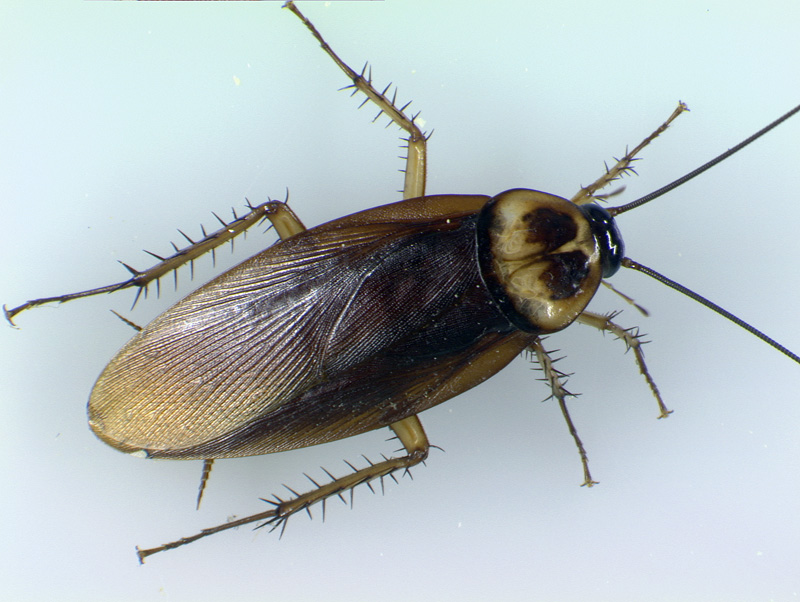Mosquitoes: The Buzzing Menace - Identification, Prevention, and Control
Mosquitoes are more than just a nuisance - they're a significant health concern for both humans and animals. As South Florida's premier pest control experts, Arrest A Pest is committed to helping you understand these pesky insects and effectively manage their presence around your property. In this comprehensive guide, we'll explore mosquito identification, biology, prevention strategies, and when to call in the professionals.
Identification and Biology of Mosquitoes
Mosquitoes are small, flying insects belonging to the family Culicidae. While they may seem insignificant, these tiny creatures have a massive impact on human health and comfort. Let's delve into their physical characteristics, life cycle, and preferred habitats to better understand our buzzing foes.
Physical Characteristics
- Size: Adult mosquitoes typically measure between 3-6 mm in length.
- Body Structure: They have a head, thorax, and abdomen, with the head featuring large compound eyes and a long, piercing proboscis.
- Wings: Mosquitoes have a single pair of narrow wings with scales along the wing veins, giving them a slightly fuzzy appearance.
- Legs: They possess six long, slender legs that allow them to land delicately on surfaces.
- Antennae: Male mosquitoes have feathery antennae, while females have less conspicuous ones.
It's important to note that only female mosquitoes bite, as they require blood meals to produce eggs. Males feed solely on plant nectar and other sugar sources.
Life Cycle
- Egg: Female mosquitoes lay their eggs in or near standing water. Depending on the species, eggs may be laid singly or in rafts of up to 300 eggs.
- Larva: Also known as "wrigglers," mosquito larvae hatch from eggs and live in water, feeding on microorganisms and organic matter.
- Pupa: Called "tumblers," pupae don't feed but remain active in the water, transitioning to adults.
- Adult: Emerging from the pupal case, adult mosquitoes rest on the water's surface until their wings dry and harden.
The entire life cycle can be completed in as little as 7-10 days under optimal conditions, leading to rapid population growth.
Preferred Habitats
Mosquitoes thrive in warm, humid environments, making South Florida ideal for these pests. They favor areas with standing water, essential for breeding:
- Stagnant ponds and marshes
- Drainage ditches
- Bird baths and fountains
- Clogged rain gutters
- Discarded tires
- Flowerpot saucers
- Tree holes
- Poorly maintained swimming pools
Prevention Tips: Keeping Mosquitoes at Bay
Preventing mosquito infestations is crucial for maintaining a comfortable and healthy living environment. By implementing these proactive measures, you can significantly reduce mosquito populations around your property:
Eliminate Standing Water
- Regularly empty and clean bird baths, pet water bowls, and fountains.
- Clear clogged rain gutters to ensure proper drainage.
- Dispose of old tires or store them in a covered area.
- Fill in low-lying areas in your yard that collect water.
- Maintain swimming pools properly, keeping them chlorinated.
- Empty children's wading pools and store them upright when not in use.
Landscape Management
- Keep lawns mowed and trim vegetation regularly.
- Remove leaf litter and debris from your yard.
- Prune tree branches to increase sunlight and reduce damp areas.
- Consider planting mosquito-repelling plants like citronella grass or lavender.
Personal Protection
- Wear long-sleeved shirts and long pants when possible.
- Use EPA-registered insect repellents containing DEET or other effective ingredients.
- Treat clothing and gear with permethrin or purchase treated items.
- Use mosquito netting when sleeping outdoors.
Home Maintenance
- Install or repair screens on windows and doors.
- Use air conditioning to keep mosquitoes out.
- Seal any cracks or gaps in your home's exterior.
Treatment Methods: When to Call the Professionals
While prevention is key, sometimes professional intervention is necessary to effectively control mosquito populations. Here are some situations where you should consider calling Arrest A Pest for expert mosquito control:
Persistent Mosquito Problems
If prevention measures fail, our professional technicians can identify breeding sites and apply targeted treatments.
Large Properties or Difficult Terrain
We provide comprehensive coverage for large areas, ensuring effective treatment even in hard-to-reach spots.
Special Events
For outdoor events, professional mosquito control ensures a bite-free experience for your guests.
Health Concerns
In areas with mosquito-borne diseases, professional pest control becomes critical for health protection.
Integrated Pest Management
At Arrest A Pest, we use IPM strategies for long-term, environmentally responsible mosquito control, including property inspections, customized treatment plans, and education on prevention.
Pest Behavior and Risks: Understanding the Mosquito Threat
To fully appreciate mosquito control, it's crucial to understand their behavior and the risks they pose:
Mosquito Behavior
- Host-seeking: Females use visual, thermal, and chemical cues to find hosts.
- Feeding patterns: Most species are crepuscular, active during dawn and dusk.
- Swarming: Males form swarms to attract females for mating.
- Resting behavior: Mosquitoes rest in cool, shaded areas during the day.
Health Risks Associated with Mosquitoes
- Disease transmission: Vectors for diseases like West Nile Virus, Zika, and Dengue Fever.
- Allergic reactions: Some may experience severe reactions to bites.
- Secondary infections: Scratching bites can lead to skin infections.
- Quality of life impact: Mosquitoes can diminish outdoor enjoyment.
Environmental Impact
Mosquitoes play a role in the ecosystem, serving as food for animals and acting as pollinators. Responsible control methods are essential to avoid harming beneficial insects.
Conclusion: Taking Action Against Mosquitoes
Mosquitoes may be small, but their impact is substantial. By understanding their biology and risks, you can protect yourself and your property effectively:
- Implement prevention strategies to reduce breeding sites.
- Use personal protection when outdoors.
- Consider professional services for persistent problems.
At Arrest A Pest, we're committed to helping South Florida residents maintain mosquito-free environments. Our expert technicians provide effective, environmentally responsible solutions.

